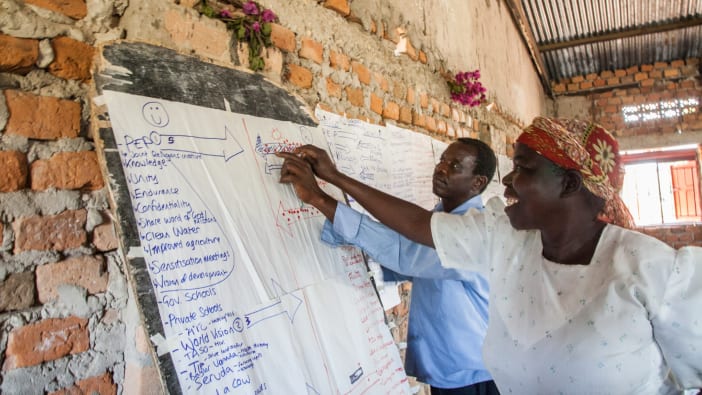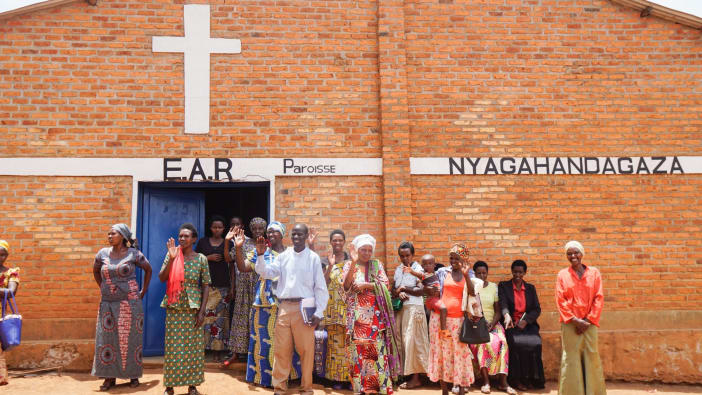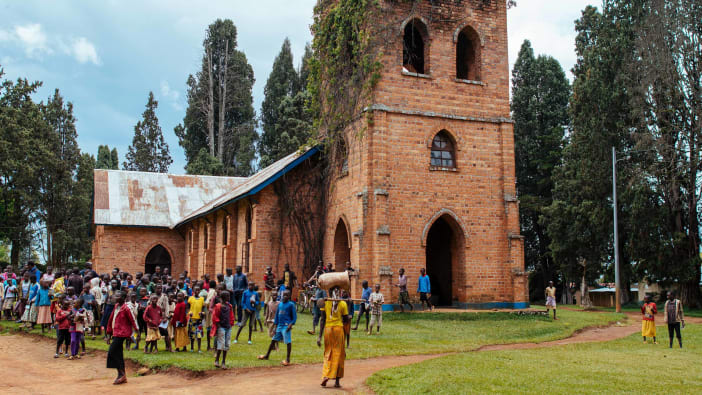Each local area has a number of different kinds of resources. People use these resources to keep alive and to cope with changing seasons, political change and cultural pressures. Helping people to understand and to value the different resources they have is very important. These are the main kinds of resources:
- Natural resources include land, trees, forests and water.
- Human resources include the skills, knowledge, understanding and labour of local people.
- Financial resources include money, access to credit and loans, credit unions and government support.
- Social resources include the culture, traditions, organisations, friends and extended family.
- Physical resources include buildings, tools, roads, water pumps and transport.
- Spiritual resources are the strength and encouragement that people gain from their faith.
Many communities are poor in financial resources but may be rich in terms of their human, social and spiritual resources. Often, one kind of resource can be used in place of another resource which is lacking. For example, instead of growing their own food, a family with few natural resources (land) could earn money to buy food by hiring out their labour and skills (human resources) to others.
Discussion
Draw a chart like the one illustrated and use it to list all the different resources in our local area. Use arrows to show particular stresses that people may face at different times.
- What kind of resources does our local area have plenty of?
- What kind of resources do you think our local area is poor in?
- What kind of improvements would help to improve our situation?
- How is our community different from other kinds of communities (such as rural, urban, slum or shanty town) which people may have lived in or visited?









